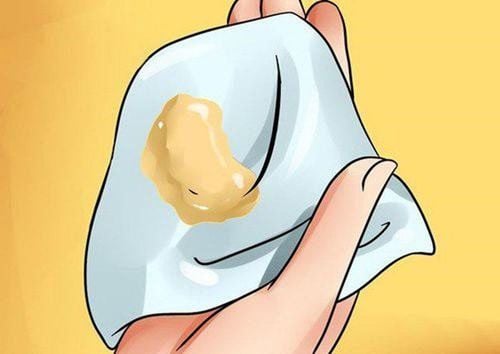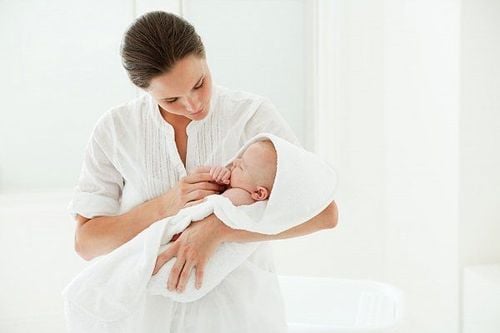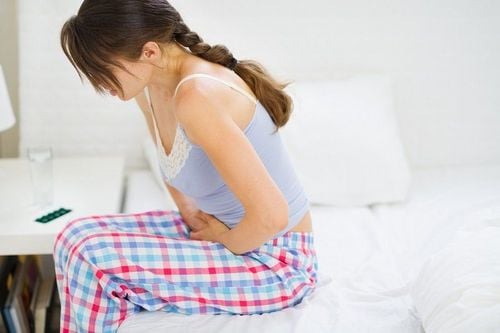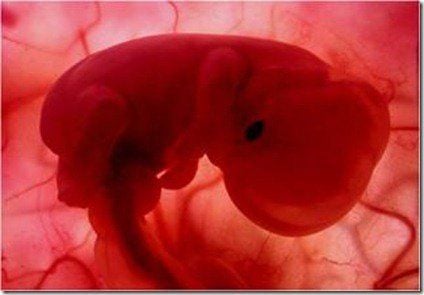This is an automatically translated article.
The article was professionally consulted by MSc, Dr. Trinh Thi Thanh Huyen - Obstetrician and Gynecologist - Department of Obstetrics and Gynecology - Vinmec Hai Phong International General HospitalWhether you have a fast or slow labor, for 2 hours or 2 days, for normal deliveries, doctors will ask you to stay at least 48 hours in the hospital to monitor your postpartum health of both mother and baby. After giving birth, your body needs a few weeks to fully recover.
1. Vaginal pain
During labor, your perineum - the area between your vagina and rectum - can stretch and tear, causing you to feel pain. Postpartum pain may be worse if you have an episiotomy, when your doctor makes a small cut that widens your vagina to help the baby out.
To relieve aches and pains at home, you should:
Place an ice pack or cold pack on the area, to reduce pain and swelling. Sit on a pillow instead of a hard surface Use warm water to keep your vagina clean while you pee. When you have to clean, use a clean cloth or paper towel to wipe the affected area and wipe from front to back. That will help you reduce pain and avoid the risk of infection.
2. Vaginal discharge
Vaginal discharge is vaginal bleeding, discharge from the hospital a few weeks after giving birth. This shows that your body is getting rid of the tissues and blood inside the uterus that nourish the baby during pregnancy.
The first few days you will see bright red blood, the amount of blood will gradually decrease, turn from light pink to brown, then turn yellow or cream before completely disappearing.

Sau sinh, mẹ bầu ra dịch âm đạo là điều hoàn toàn bình thường
3. Contractions
Contractions for a few days after giving birth are normal. This is because your uterus is shrinking after giving birth.
You may notice these pains more while you are breastfeeding, because when you breastfeed your baby releases chemicals in your body that cause your uterus to tighten. You can put a warm compress on your abdomen, or consult your doctor if the condition becomes severe.
4. Constipation
You may have trouble going to the bathroom after giving birth. This could be a side effect of pain relievers you took during childbirth. If you've had an episiotomy, this also makes it more difficult for you to go to the bathroom.
To relieve constipation, you should drink plenty of water and eat foods that are high in fiber.
If you have hemorrhoids after giving birth, you can use witch hazel to relieve pain and itching.
5. Diarrhea
The muscles and tissues in your rectum can be stretched or torn during childbirth, putting you at risk for diarrhea. This condition should improve within a few months after giving birth.
Depending on the cause, the doctor will prescribe to control the diarrhea. Certain foods like dairy, gluten, or foods high in fat and artificial sweeteners can cause diarrhea.

Sau sinh, sản phụ có thể xuất hiện triệu chứng tiêu chảy
6. Urinary retention
During a long delivery, the fetus puts pressure on the bladder, making the bladder insensitive to stimulation when the urine is full, causing urinary retention.
In some cases, urinary incontinence may occur when coughing or laughing. To improve this condition, you should perform Kegel exercises.
7. Mastitis
During the first 3-4 days after birth, your breasts will make colostrum, a nutrient-rich substance that helps strengthen your baby's immune system. Then your breasts will become engorged when full of milk.
Massaging or pumping will help reduce swelling and pain. You should put a cold towel on your chest while breastfeeding.
If you're not breastfeeding, it's a good idea to wear a comfortable, well-fitting bra to avoid rubbing your breasts, which will help you make more milk.
8. Hair and skin changes
Don't panic and worry if your hair is thinning in the first 3-4 months after you give birth. Hair loss is caused by hormonal changes. When you're pregnant, high hormone levels make hair grow faster and shed less.
You may also see red or purple stretch marks on your abdomen and chest. They will not disappear completely, but will fade away.
9. The "baby blues" syndrome
After giving birth, you may face a range of emotions, including anxiety, depression, moodiness and fatigue in the early days of motherhood. This is known as the "Baby blues" syndrome, caused by hormone changes.
If after a few weeks, the condition still does not improve, you should consult your doctor for timely treatment because you may be at risk of postpartum depression.
After about the first 6 weeks postpartum, you will need to have your vagina, uterus, cervix checked, as well as your weight and blood pressure. Once your health is restored, you can have normal sex and return to your exercise routine.
Inform your doctor immediately if:
Uncontrolled vaginal bleeding Severe headache Leg pain accompanied by swelling Chest pain, breast swelling
Please dial HOTLINE for more information or register for an appointment HERE. Download MyVinmec app to make appointments faster and to manage your bookings easily.
Article referenced source: Webmd.com












